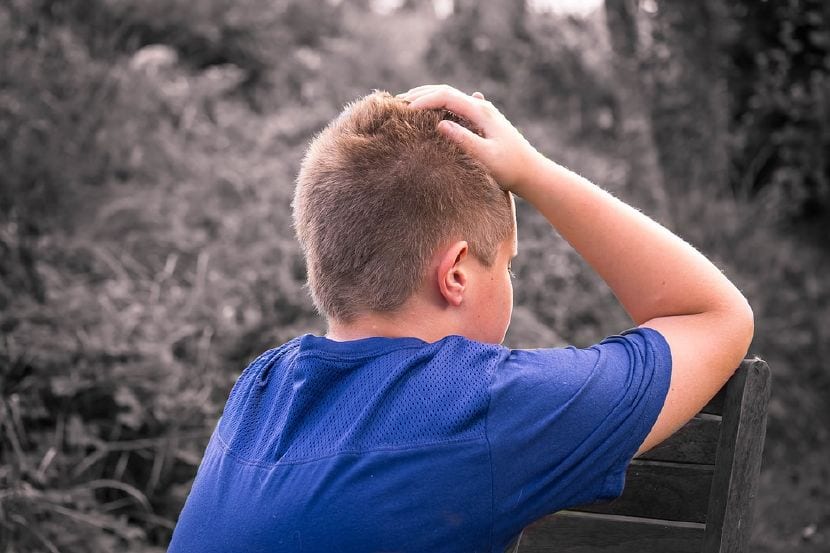
Children are forming their self-concept since they are very young, which can lead to self-esteem problems. Teasing, seemingly unimportant comments, their experiences, their own personality ... are shaping the concept they have about themselves and how they differ from others. Many adults carry self-esteem problems since childhood, so it is necessary know how to face the complexes of children to tackle the problem.
Parents, the main source of self-concept
When children begin to speak, they generate ideas related to them. It is over 6 years when your cognitive system is forming and they already have a concept of themselves and others. Focusing first on physical aspects, and then on other more complex aspects such as abilities and skills. Complexes can cause self-esteem problems that can limit their psychological and emotional development.
Parents are the main figures in children's lives as they shape children's perception of their physical, intellectual capacities and abilities. Seemingly harmless comments as affectionate nicknames ("my chubby", "my skinny") they direct how children think they are and how others see them.
As they grow, the opinions and comments of their friends and schoolmates will have more effect on them. They will begin to compare themselves to others, and teasing will leave a mark on your memory. Bullying and teasing create big complex problems in children, we already know that children can be very cruel.
How do complexes affect children?
When one is affected by complexes affects our behavior and personality, feeling of worth and a distorted perception of ourselves. They cause insecurity, lack of confidence in yourself and your abilities, anxiety ... that will affect your whole life.
The arrival of puberty can accentuate these problems, a stage where insecurities become palpable. Physical changes can generate complexes in them, as well as criticism from their peers.
Parents play a fundamental role in creating children's self-concept. We must be attentive to the signs that can indicate to us that there is a complex to help them overcome them. Let's see some tips on how to deal with complexes in children.

Tips on how to cope with complexes in children
- Actively listen to your child. Make him feel like you care and value his feelings. It should be active listening, where you look into his eyes and are not doing anything else. Let them feel comfortable talking about how they are feeling, and let them feel that you care about their feelings. Let them feel loved and valued.
- Focus on your strengths. Mention all the positives you have so that they don't focus on just one negatives. You can also help him find them himself and learn to value their strengths.
- Strengthen your self-esteem. We must teach him to accept and love himself as he is, explaining that we are all different and special. Accepting our limitations and fostering our virtues. For this we need positive thoughts and attitudes that reinforce a positive view of ourselves.
- Give example. If he hears you criticize and laugh at the physique and abilities of others, you are giving him a signal that others because of their limitations are not valid and are only made fun of. Be respectful of others and their differences, and also be careful with the messages you send about yourself: "I am old", "I have nothing but wrinkles", "where am I going" are negative messages towards ourselves.
- Work social skills. So that they know how to face possible criticism and ridicule from respect.
- Don't focus on the complex. If you spend all day reminding him of his complex, you are not helping him. It is one thing to pay attention to it and another to focus on it. You have to give it the necessary importance, without making it grow.
Because remember ... just how you see yourself, that's how others will see you. It's just a matter of where you put your focus of attention.